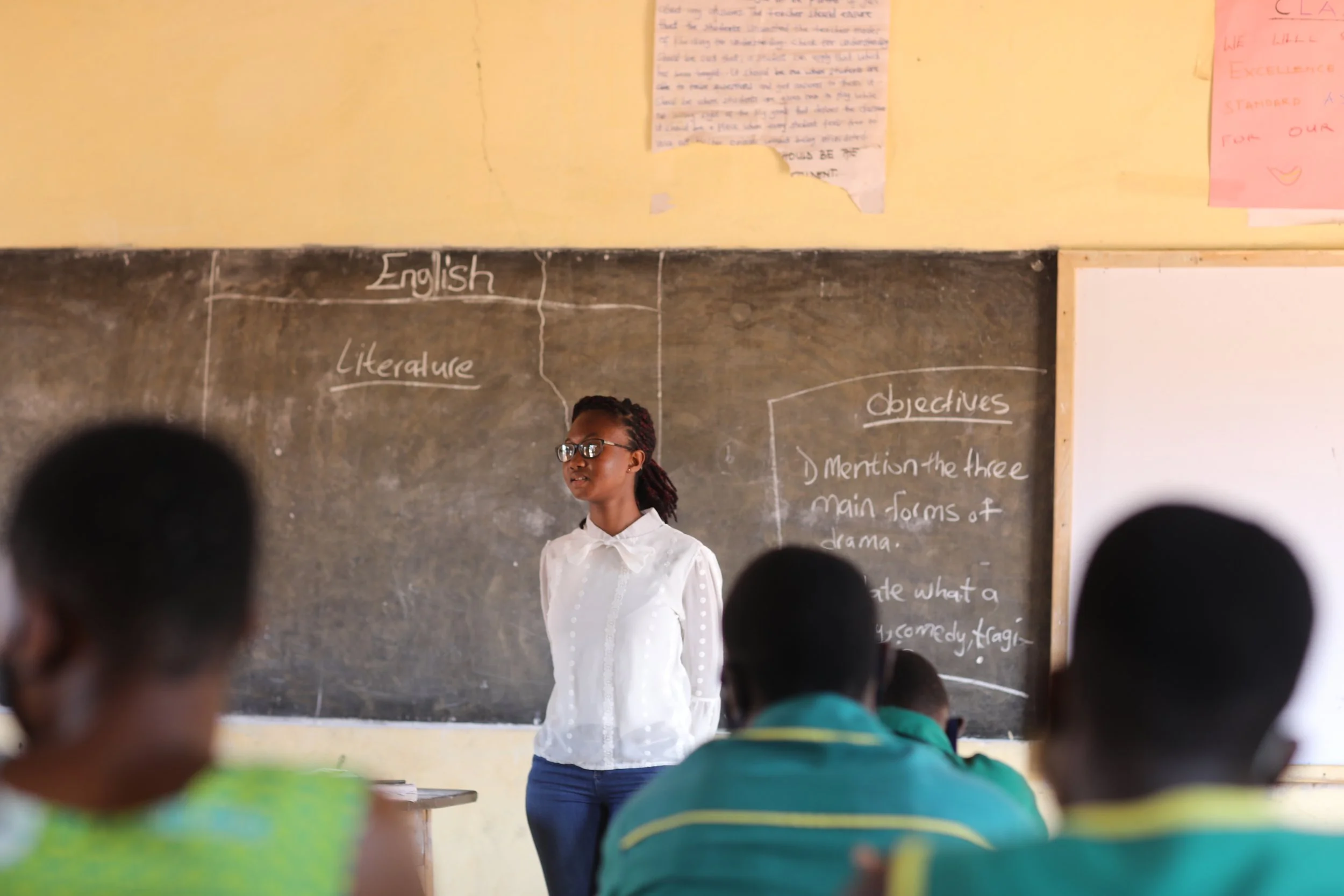We’re here to help solve Africa’s boldest challenges.
In education. In leadership. In technology.
Not just to improve systems, but to reimagine what’s possible..

Educational Challenges
9
10
in
children in Africa struggle to read a simple text by age 10.
Source: Global Partnership for Education: Education Data Highlights.
of children in Africa start primary school.
80%
38%
of them do not graduate on time.
Source: Global Partnership for Education: Education Data Highlights.
$8,500
$100
is what governments in high income countries spend per child per year on education.
is what governments in Africa spend per child per year on education.
Source: UNESCO-World Bank Education Finance Watch.
98
million children in Africa are out of school.
Source: UNESCO Education Monitoring Report

Leadership Challenges
Mismatch between education and leadership needs.
Formal education in Africa often doesn’t cultivate the leadership, ethics, and innovation capacity required for the 21st century.
Weak leadership pipelines.
Few African countries have intentional leadership development systems within civil service, corporate governance, and education. And youth and women especially face limited access to networks, mentorship, and resources.
Insufficient focus on leadership development
Many institutions and companies underinvest in leaderships development programs, coaching, and performance management. And learning is often limited to technical upskilling, with limited emphasis on emotional intelligence, adaptive leadership, or innovation capacity.
Global influence without local ownership.
Leadership must strike a balance between global alignment and local agency.

Technological Challenges
Inadequate Digital Infrastructure.
Only 36% of people in Africa have access to the internet (Compared to 66% globally). Africa needs an estimated $100 billion in investment to close its digital infrastructure gap by 2030 (World Bank, 2023).
Digital Skills Gap.
Millions of youth leave school without basic digital literacy, let alone advance ICT or STEM capabilities. The continent faces a shortage of software engineers, dat scientists, and cybersecurity experts. Training opportunities are fragmented and often urban-centric. Africa will need to train up to 230 million people in digital skills by 2030 to meet labor demand (IFC/World Bank)
Low local manufacturing Capacity.
Africa is heavily reliant on imported hardware, software, and infrastructure. There’s limited capacity to produce components, devices, or industrial technology locally. This limits sovereignty and makes countries vulnerable to global supply chain shocks.
High Cost of Connectivity
Africa has the world’s most expensive internet relative to income. In several countries, 1GB of mobile data costs more than 5% of monthly income, far above the 2% affordability threshold set by the United Nations. Affordability blocks digital access for the poorest and widens inequality in tech use.
